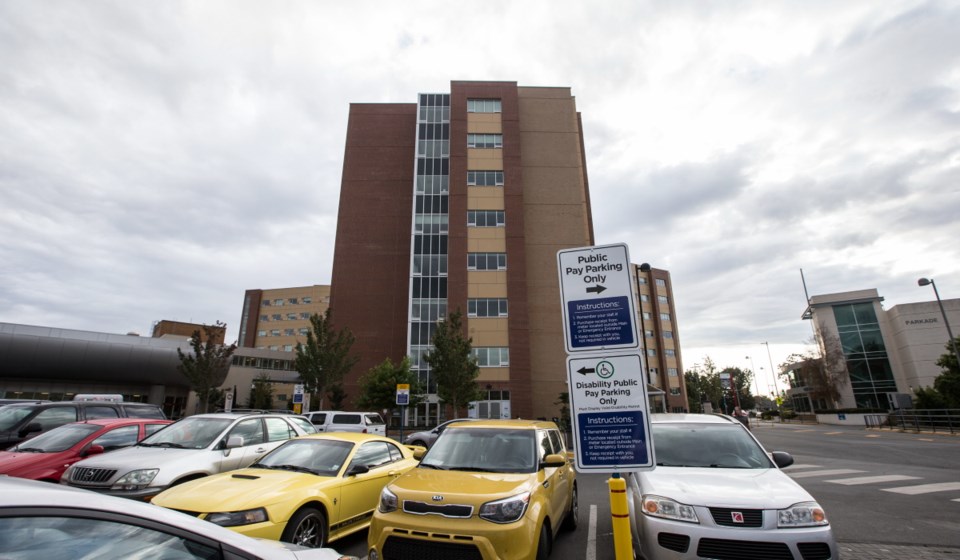VANCOUVER — The founder of a non-profit organization devoted to eradicating hospital parking fees says it’s time for B.C.’s health authorities to cut their addictions to parking revenue.
Jon Buss’s comments came after the Provincial Health Services Authority signed a contract that will pay Impark about $14.5 million over five years to manage Fraser and Coastal Health hospital parking lots, and that will allow the private company to keep the violation revenue it collects. For Buss, paid hospital parking is an “exploitative money-making scheme” that creates stress and anxiety for patients and their supporters.
“This is a social service we all pay for. Why is it that we have to face this charge at our moment of need?” asked Buss, the founder of the group hospitalpayparking.ca.
Buss’s group posted the contract, dated June 2018, to its website after obtaining it through a freedom of information request.
Under the contract, Impark, a private corporation, will collect parking revenue, maintain parkades and equipment, provide collection services and retain revenue from violation notices, among other things.
The contract proposes further automation at some hospital parking lots, which Buss contends would boost violation revenue. The contract began Jan. 1, 2019 and runs until Dec. 31, 2023.
During the fiscal year ended March 31, 2018, Fraser Health received nearly $15 million in parking revenue and Coastal Health received about $5.5 million. For a sense of scale, the budget of each health authority is roughly $3.5 billion per year.
Health Minister Adrian Dix said he has heard about complaints about pay parking at hospitals across B.C., and notes that pay parking revenue has increased dramatically over the past decade.
“Reducing this burden that has grown over the past several years is currently one of the issues I am looking at as minister,” said Dix. “One action that we have taken is that pay parking is not being expanded to new sites.”
Most hospitals have a process to waive fees where it poses a genuine hardship for patients and families, he said. Most sites also have a variety of pay options for different types of visits, including daily, weekly, extended stay rates, and subsidized rates for those in financial need.
Requests for comment from Impark were not immediately returned.
For Buss, parking fees should be eliminated at B.C. hospitals, and he points to Scotland and Wales as having paved the way for other jurisdictions to wean themselves off hospital parking revenue.
Closer to home, Mission and Campbell River are among the local governments that have enacted their own bylaws to prohibit paid parking at hospitals, as has Buss’s home municipality of Delta.
Buss would like to see management of hospital parking lots transferred from private hands to local governments and he is pushing for the province, municipalities and health authorities to come together to find a new parking model.
Buss encouraged B.C. residents to make their voices heard on the issue.
A template letter to MLAs posted to his group’s website asks recipients to press for a legislated end to hospital pay parking in B.C.



